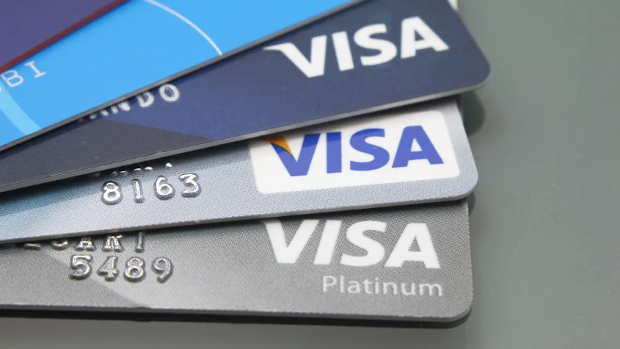
New collaborations include Anthropic, IBM, Microsoft, Mistral AI, OpenAI, Perplexity, Samsung, Stripe and more
Life
Image: Shutterstock via Dennis
Visa has revealed plans for agentic AI, cryptocurrency, a new credit model of personal credit and payments.
The company’s global product drop showed how a combination of AI and digital commerce will mark a significant shift in the way consumers discover and buy products and services. This includes a vision of how consumers will enable AI agents to browse, select, purchase and manage on their behalf.
Visa will bring this trust to AI commerce through partnerships with AI platforms, tech players, banks, fintechs, merchants and more.
“As new ways to pay emerge, they need to run on a network that is always on – that is safe, secure, scalable and relentlessly innovating,” said Visa CEO Ryan McInerney.
Agentic AI
In the last 25 years, Visa’s network has processed 3.3 trillion transactions. Visa will extend the infrastructure, standards and capabilities present in physical and digital commerce. Consumers will soon be able to shop via AI platforms to use a Visa credential (of which there are 4.8 billion) at any accepting merchant location for any payment use case.
“Historically, Visa has used AI to protect consumers, harnessing it to help combat fraud. Now, we will also enable AI to empower consumers, fundamentally shifting digital commerce to make it more personal, more relevant and more delightful,” said McInerney. “For any AI commerce use case to take hold, the payment is a critical enabler of success. If there is no payment, there is no commerce. That’s the expertise and trust that Visa brings.”
To move the needle on AI commerce at the speed and scale required, the company is collaborating with the AI platforms and brands that consumers and merchants are choosing to work with every day, including Anthropic, IBM, Microsoft, Mistral AI, OpenAI, Perplexity, Stripe and Samsung.
“We see tremendous potential for the role AI agents will play in commerce, from streamlining ‘regular’ transaction-driven tasks such as ordering groceries, to more sophisticated search and decision-making like securing that hard-to-get restaurant reservation or concert ticket,” said Jack Forestell, Visa’s chief product and strategy officer.
“This will be a transformative change, bringing more magic and convenience to the consumer experience and creating a new world that will forever change how we shop and buy.”
Stablecoins
For over half a decade, Visa has been facilitating crypto transactions and is now further expanding the applications for stablecoins with stablecoin-linked cards, settlement and programmable money. Bridge, a Stripe company, is working with Visa on a new card product that enables fintech developers to offer stablecoin-linked Visa cards to their end customers in multiple countries through a single API integration.
Flex Credential
Last year, Visa reinvented the card with the introduction of the Flex Credential, a next generation card that can seamlessly toggle between different payment methods (debit, credit, buy now, pay later). Today, millions of people around the world are using the Flex Credential and Visa plans to roll out new use cases like expanding access to lines of credit, investment accounts, rewards, commercial cards and more.
Visa will begin offering a debit-to-buy now pay later later with Klarna this year.
Visa is also announcing more ways for consumers, merchants and partners to pay and get paid around the world. Visa Pay is a new service designed to connect any participating wallet to any Visa-accepting merchant, local or international, in-store or online.
Visa Accept is a new offering to give micro-sellers a way to get paid to eligible Visa debit cards, from any NFC-capable smartphone with just a few clicks, providing access to billions of credentials with just one card in your pocket. Visa Accept is being released for Visa beta partners in Latin America and Asia this July.
TechCentral Reporters

